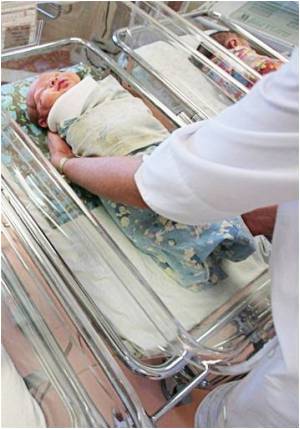
Demand for neonatal services in Wales has increased with the rising birth rate and improvements in care, which mean babies born at just 22 weeks have a chance of survival.
But the inquiry, which took evidence from experts and parents, heard Wales’ 13 units were working under incredible pressure, with only the clinical needs of sick and premature babies being met. Many of them are working at 140% capacity – double the recommended level.
It said babies were not receiving one-to-one nursing care, the standard adults in intensive care receive.
And it heard that under-staffing often meant units were closed to new admissions – the Royal College of Midwives said some have closed up to 100 times in the last two years.
The report, which makes 18 recommendations to improve neonatal services, also revealed the promised 12-hour dedicated transport service, which should have been operational from this spring, has not yet been set up.
Advertisement
“Given the rising birth rate in Wales and the increase in the number of low-birth-weight babies being born, pressure on neonatal services is set to increase. In 2008, the Minister for Health and Social Services announced new funding for neonatal care but, as Members, we are still receiving representations from constituents and special interest groups voicing significant concerns about these services. Given these concerns, the Committee decided to undertake an inquiry to determine whether improvements have been made since the announcement of this additional investment in neonatal services.
Advertisement
“The recommendations in our report cover funding and staffing as well as areas such as neonatal unit occupancy levels, transport services, and the implementation of the All Wales Neonatal Standards produced by an expert group established by the Minister. As a Committee, we trust that our recommendations will lead to improved services for our most vulnerable babies and their families.”
Among other things, the report said, “We recommend that the Welsh Government, in conjunction with the Health Boards, puts in place measures, as a matter of urgency, to address the shortfall in medical and nursing staff to ensure services are safe. We recommend that the Welsh Government should put in place measures to ensure that neonatal units achieve occupancy levels that are capable of meeting the fluctuations in demand.
“We recommend that the Welsh Government should establish a Cot Locator system, to ensure that cots are allocated on an efficient basis and to reduce unnecessary transfers between units. The system should be compatible with systems in England.
“We recommend that the Welsh Government should ensure that the 12-hour transport service is in place and operational as soon as possible.
“We recommend that the Government should ensure better integration of, and joint working between, neonatal and maternity services.”
Dr Jim Richardson, of the Royal College of Nursing Wales’ board, said: “It is important that neonates, particularly unwell neonates, get the same standard of care as any other child.
“There are challenges in providing the service and the fragility of the babies means they require highly specialised care.
“We have a rising birthrate so there will be rising demand for neonatal services.
“That means we have to be more proactive and the Government more mindful of the support providers are getting.”
Andrew RT Davies, Shadow Health Minister and a member of the health committee, said: “I would urge the Assembly Government to address severe under-staffing in units and the high occupancy rates, which are double the recommended level at 140% in some units.
“It is incumbent on the minister to ensure that the recommendations of this report are implemented so that vulnerable babies can have the best possible start to their lives.”
Source-Medindia





